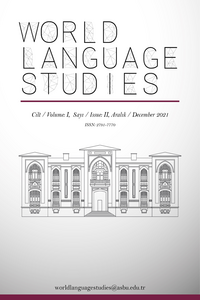Psikoza Sürüklenen Bir Hayat: Kim Ji-Young, Doğum: 1982'de Her Kadının Hiç Kimse Olarak Temsili
Cho-Nam Joo tarafından 2016 yılında kaleme alınan Kim Jiyoung, Doğum: 1982, toplumsal cinsiyet rollerini ve standartlarını belirleyen kurumlara şiddetle karşı çıkmakta, kadınların ataerkil bir toplumda yaşadıkları deneyimlere odaklanırken aynı zamanda karşılaştıkları cinsiyete dayalı ayrımcılığı ve duygusal istismarı eleştirmektedir. Anlatı, toplumsal cinsiyete dayalı ücret farkı, işyerinde taciz, duygusal istismar, kadın düşmanlığı, gaslighting ve geleneksel toplumsal cinsiyet kalıplarına uyma baskısı da dahil olmak üzere, kadınların kendilerini savunurken ve toplumdaki yerlerini belirlerken karşılaştıkları zorlukların ilgi çekici bir analizini sunuyor. Bu makale, bu zorlukların psikoza sürüklediği bir toplumda, tüm kadınların temsilcisi olarak ortaya çıkan, ancak ataerkil paradigmada herkesin ve her şeyin altında kategorize edilen kadınların iç ve dış dünyasını Kore toplumuyla ilişkili olarak keşfetmeye çalışacaktır. Makale, daha fazla toplumsal cinsiyet eşitliği ve toplumsal değişim ihtiyacını vurgulayarak okuyucuları daha eşitlikçi ve adil bir topluma nasıl katkıda bulunabilecekleri konusunda düşünmeye teşvik eden bu romanı, kendilerini hapsedilmiş hissettikleri ve patolojik deliler olarak görüldükleri ataerkil bir toplumda yaşamaya çalışan tüm kadınların temsili açısından inceleyecek ve kadınların toplumsal cinsiyet normlarını aşma iradesine ses vermek için yaratılan alternatif bir kadın anlatı öznelliğini Batılı feminist teoriler çerçevesinde bağlamsallaştırma yoluyla analiz edecektir.
Anahtar Kelimeler:
Ataerkil kültür, Cinsiyet ayrımcılığı, Cinsiyet eşitliği, Cinsiyet baskısı, Kim Jiyoung Doğum: 1982, Cho Nam-Joo
A Life Dragged into Psychosis: Representation of Every Woman as Nobody in Kim Ji-Young, Born 1982
Kim Jiyoung, Born 1982, written by Cho-Nam Joo in 2016, vehemently opposes the institutions that typically determine gender roles and standards, focusing on women’s experiences in a patriarchal society while also criticizing the discrimination on the basis of gender and emotional abuse that women encounter. The narrative offers a compelling analysis of the difficulties women encounter in asserting themselves and locating their places in society, including the gender pay gap, workplace harassment, emotional abuse, misogyny, gaslighting, and the pressure to adhere to traditional gender stereotypes. In a society driven to psychosis by these challenges, this article will try to explore the inner and outer world of women who emerge as representative of all women, but who are categorized below everyone and everything in the patriarchal paradigm, in relation to Korean society. The article will examine this novel by means of its portrayal of women and gender dynamics and contextualizing it within the frameworks of Western feminist theories, which encourages readers to think about how they can contribute to a more egalitarian and just society by emphasizing the need for greater gender equality and social change, from the point of view of the representation of all women trying to live in a patriarchal society where they feel imprisoned and are considered pathological lunatics and analyze it through its contextualization within Western feminist theories of an alternative female narrative subjectivity created to give voice to women's will to transcend gender norms.
Keywords:
Cho Nam-Joo Gender discrimination, Gender equality, Gender oppression, Kim Jiyoung, Born 1982, Patriarchal culture,
___
- Butler, J., (2004). Undoing Gender. New York:Routledge.
- Cho, N. J., (2020) Kim Jiyoung, Born 1982. Translated by Jamie Chang, Liveright Publishing Corporation.
- De Beauvoir, S., (1987). The Second Sex (H. M. Parshley, Trans.). Vintage Books, New York.
- Gaslighting. (2023, June 17). In Wikipedia. https://en.wikipedia.org/wiki/Gaslighting.
- Hirami, B., (2021, August 22). Book Review: Kim Jiyoung, Born 1982 by Cho Nam-Joo. Asia Media International. Retrieved May 2, 2023, from https://asiamedia.lmu.edu/2021/08/22/book-review-kim-jiyoung-born-1982-2021-by-cho-nam-joo/.
- Hooks, B., (2015). Feminism is for Everybody: Passionate Politics. New York:Routledge.
- Hong, E. (2020). Woman on the Verge (p. 16). The New York Times Book Review. https://www.nytimes.com/2020/04/14/books/review/kim-jiyoung-born-1982-cho-nam-joo.html Korean Law via the Internet, Hoju system, KoreanLII, http://www.koreanlii.or.kr/w/index.php/Hoju_system, (Date of Access:9.05.2023)
- Lorde, A., (1995). Age, race, class, and sex: Women redefining difference. In Campus Wars (pp. 191-198). Routledge.
- Orozco, D., (2017). Confucius vs. the Women of China: A Feminist Struggle [Doctoral Dissertation, California State University]. https://scholarworks.calstate.edu/downloads/37720g05v?locale=zh
- Orwell, G., (2000). Animal Farm. London: Penguin Group Ltd., Print.
- Petric, D., (2018). Gaslighting and the knot theory of mind. 10.13140/RG.2.2.30838.86082.
- Sandberg, S., (2013). Lean in: Women, Work, and the Will to Lead. New York, New York: Alfred A. Knopf.
- Showalter, E., (1985). The Female Malady: Women, Madness, and English Culture, 1830- 1980. (p.4). New York: Pantheon Books.
- Simon, G., (2011). Gaslighting as a Manipulation Tactic: What It Is, Who Does It, And Why. Counselling Resource. Retrieved May 9, 2023, from https://counsellingresource.com/features/2011/11/08/gaslighting/.
- Sleziak, T., (2013). The Role of Confucianism in Contemporary South Korean Society. Rocznik Orientalistyczny, 27-46.
- Steinem, G., (1969). After Black Power, Women's Liberation. New York Magazine, 8-10. https://jwa.org/sites/default/files/jwa067a.pdf
- Thomas, L., (2018). "Gaslight and gaslighting". The Lancet. Psychiatry. 5 (2): 117–118. doi:10.1016/S2215-0366(18)30024-5. PMID 29413137. Retrieved May 9, 2023
- Woolf, V., (2016). A Room of One's Own and Three Guineas. Vintage Classics.
- Başlangıç: 2021
- Yayıncı: Ankara Sosyal Bilimler Üniversitesi
